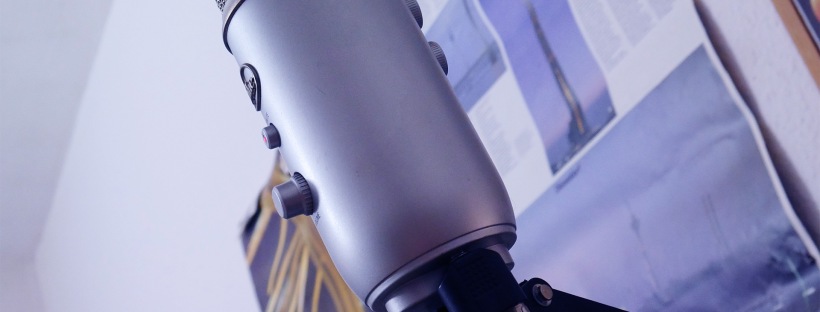Never properly working with print and broadcast media is something I regret. Radio, newspapers, physical magazines, and especially books and television aren’t dead yet of course, but they’re getting there. It’s not really feasible for people today to seek out a career in most of these fields, and making a hobby out of them seems nearly impossible. It’s still possible to enjoy them for a while, but it might feel the same anymore.
Today I’ll go over radio and compare old to new. Tomorrow I’ll briefly write about newspapers and magazines.
Radio
There was something charming about turning on the radio and scanning for new stations and other signals, especially while travelling. I remember listening to a handful of drunk people arguing over local gossip one time when I was in a small Bavarian town over ten years ago. Simple news about the weather made the world feel big and my journeys like adventures instead of inconveniences. Tuning in to talk radio with different points of discussion during a sleepless night always felt melancholic and comforting at the same time.
When the internet started to pick up more steam, these things changed in the way they were presented and in the ways you could find them.
Early internet radio was a mess. Especially small and independent broadcasters suffered from young technologies, tanking production values to an all-time low. Local communities were replaced by set topics, and accessibility became limited to either stationary or expensive devices. Archives were hardly kept, and if they were, they usually weren’t available to the public. Because search engines weren’t that great yet, and webmasters knowing how to optimise their products for them were rare, it also became a hassle to find what you were looking for.
Then technologies and creation tools improved. Podcasts are convenient to listen to, easy to find, and have higher production standards. You can again be anywhere in the world and listen at your own pace, regardless of connection quality. While live-broadcasts are still around and more accessible than ever, recorded archives are the main meat now.
Even with all these improvements, there are things about the old ways that I will miss. You had to actually look for something to listen to – find your radio, maybe put batteries in, prop up the antenna, and turn a dial. There is something in deliberately seeking out entertainment or information that the modern over-abundance of available products can’t replicate. Your PC, smartphone, or whatever device you want to use is always running. Recordings of new shows and broadcasts are downloaded while you’re not even looking. It’s practical, but different. Then again, with so many products being readily available, you might have to look harder to find something now. It’s a good flavour of being picky though – you can actually find something you want now instead of being limited to local availability.
My enthusiasm for old radio seems largely fuelled by nostalgia and my way of romanticising isolation, with radio oftentimes being the one thin link to society. You could phone the station, but compared to modern capabilities of communication there wasn’t really a way to feel involved. This also means that you couldn’t be drowned out though, so in a way it felt more inclusive and personal. It was more of an experience than it was a product, and that’s something I would still enjoy today.
My dream of hosting talk radio is long lost. I won’t be sitting in a cosy tower on the edge of a rural town and talk to the people “out there”. I won’t give out warnings to locals and travellers, and there won’t be any lonely or interesting callers to make long nights more bearable. Still, I’m looking forward to providing information and entertainment in the style that kept me sane for many years in the past. Speaking to friends having a good time at home, someone on their way to work, a family in a snowed-in car, a lone traveller in the mountains – I’m looking forward to soon explore a medium that I hold dear, in a new and exciting way.
